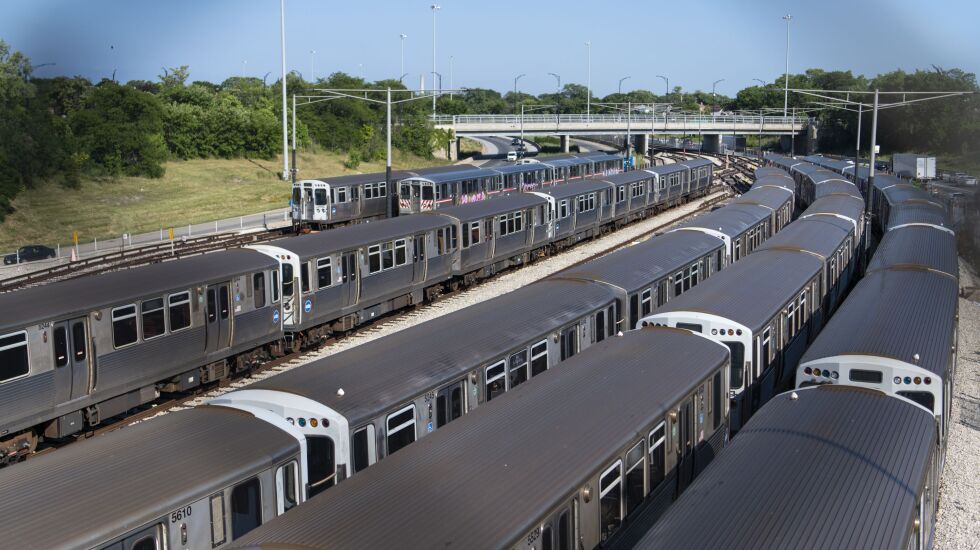
Facing what he called a “funding cliff,” Regional Transportation Authority Chairman Kirk Dillard is calling for more public funding over the next several years.
The RTA will see a $730 million gap in operating funds by 2025 as federal COVID-19 relief dollars run out, Dillard said.
Relying on fares to keep the RTA’s budget afloat is no longer realistic, Dillard said, speaking to the City Club of Chicago Wednesday afternoon.
“Prior to COVID, 70% of everybody that worked in the central business district took mass transit to work,” Dillard said. “If you want to revitalize the city ... you better help us revitalize mass transit.”
Four times more Chicagoans work from home in 2023 than they did prior to the COVID-19 pandemic. Ridership numbers are still recovering, Dillard said.
Before approaching elected officials for additional funding, RTA plans to work with CTA, Pace and Metra leaders to improve security protocols on buses and trains, as well as work to lower carbon emissions, Dillard said.
Although the CTA, Pace and Metra systems have their own leadership, RTA is in charge of securing funding for all three. Dillard works closely with CTA President Dorval Carter and others to oversee larger strategic plans related to Chicago-area mass transit.
Some Chicago mayoral candidates have already made “significant suggestions” to RTA, Dillard said.
“I don’t expect us to be entrusted with new public funds without making some significant improvements from the system of today,” Dillard said.
The RTA will also take inventory of accessibility projects in order to make CTA, Pace and Metra more accessible before seeking future public funding, Dillard said. Funding from the federal Infrastructure Investment and Jobs Act signed in 2021 by President Joe Biden will be used to make some accessibility improvements, with the support of Sen. Tammy Duckworth (D-Ill.).
Public funding could also be used to address continued employee shortages on all three transit lines, Dillard said, as well as cut down on ghost buses — those shown running on real-time tracking software but never arrive, irritating transit officials and customers.
The RTA does not plan on securing more funding by raising fees or reducing scheduled trains, Dillard said.
“All our research shows that when you cut service and increase fares, you’re only going to reduce” ridership, Dillard said. “You’re only going to make the hole bigger.”
Dillard previously argued in favor of a transit tax to increase RTA revenue during a similar financial crunch in 2015.
He cited other major cities where transportation is financed more through public means than by fares, including Austin, Texas; Los Angeles; Sacramento, Calif.; and London.
By law, half of RTA’s operating budget has to come from fares. This requirement was suspended by emergency legislation during the COVID-19 pandemic and is no longer feasible, Dillard said.
“It’s time for the Chicago area to catch up,” Dillard said.







